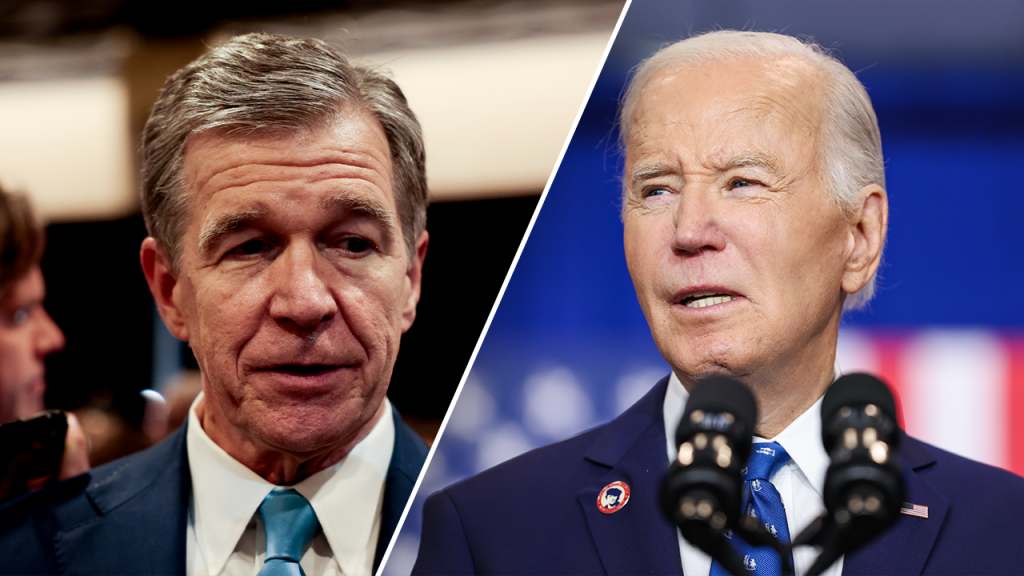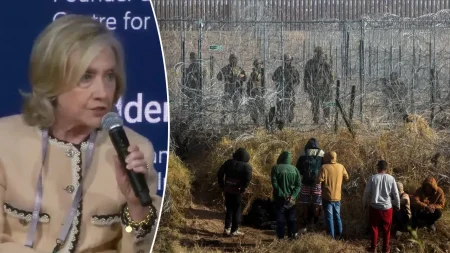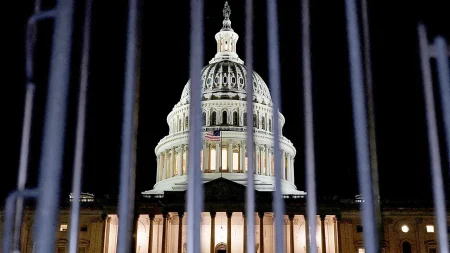Former North Carolina Governor Roy Cooper, a Democrat whose name has been mentioned as a potential 2028 presidential candidate, commuted the death sentences of 15 inmates on the state’s death row before leaving office. This action mirrors a similar move by President Biden, who commuted the sentences of nearly all federal death row inmates, drawing criticism. Cooper described these decisions as some of the most challenging a governor faces, highlighting the gravity of the death penalty. He emphasized that the commutations ensure the inmates will remain incarcerated for life. North Carolina has not carried out an execution since 2006 due to ongoing legal challenges.
Among the inmates whose sentences were commuted is Hasson Bacote, convicted of felony murder. Bacote, a Black man, had challenged his death sentence under North Carolina’s Racial Justice Act, alleging racial bias in his conviction by a predominantly White jury. Similarly, Rayford Burke, convicted of murder in Iredell County, also reportedly invoked the Racial Justice Act in seeking relief from his sentence. Another inmate, Christopher Roseboro, has served approximately 30 years in prison. He was indicted in 1994 on charges including first-degree rape, stemming from allegations that he and an accomplice robbed and sexually assaulted an elderly neighbor, who was later found dead. The co-defendant, Roger Bell, is already serving a life sentence.
Darrell Strickland, convicted of manslaughter following a 1995 altercation, also had his sentence commuted. Vincent Wooten, convicted of the 1993 murder of Edward Wilson, received a similar commutation. Evidence presented at Wooten’s trial reportedly indicated he shot Wilson with a modified automatic AR-15 rifle following the theft of a safe containing cocaine and cash from the mother of Wooten’s girlfriend. Guy T. LeGrande, another inmate whose sentence was commuted, was involved in a murder-for-hire plot. He was later diagnosed with a mental disorder.
Cooper’s commutations follow President Biden’s extensive use of clemency powers, which resulted in the reclassification of numerous death sentences to life imprisonment without parole. The White House justified Biden’s actions by citing his commitment to reducing violent crime and ensuring a fair justice system. Biden expressed his belief that the federal government should abolish the death penalty except for cases of terrorism and hate-motivated mass murder, which explains why the commutations did not apply to those categories of offenses. One death row inmate whose sentence was commuted by Biden, Rejon Taylor, expressed surprise at the president’s decision and pledged to make the most of the opportunity.
However, some of Biden’s commutations have provoked bipartisan criticism, particularly the case of a Pennsylvania judge imprisoned in the “kids-for-cash” scandal involving the unjust sentencing of juveniles to for-profit detention facilities. While Cooper’s 77 pardons and commutations during his two terms as governor are substantial, they pale in comparison to the nearly 700 granted by former Democratic Governor James B. Hunt Jr. during his four terms in office. Following Biden’s actions, only three individuals remain on federal death row: Robert Gregory Bowers, convicted in the 2018 Pittsburgh synagogue shooting; Dzhokar Tsarnaev, one of the perpetrators of the Boston Marathon bombing; and Dylann Roof, convicted of the Charleston church shooting. Josh Stein, a Democrat and former North Carolina Attorney General, succeeded Cooper as governor.
The outgoing actions by both Cooper and Biden reflect the complex and evolving dialogue surrounding the death penalty in the United States. While some argue that it serves as a just punishment for heinous crimes, others point to concerns about racial disparities, wrongful convictions, and the moral implications of state-sanctioned killing. These actions are likely to continue to fuel the ongoing debate about capital punishment. They also underscore the significant power held by governors and presidents to grant clemency and shape the future of individuals convicted of serious crimes. The commutations bring into focus the intricate interplay between legal, political, and ethical considerations in the administration of justice.













